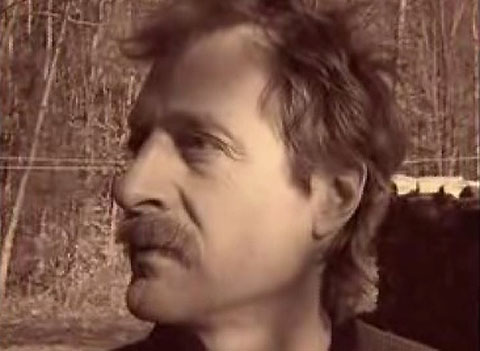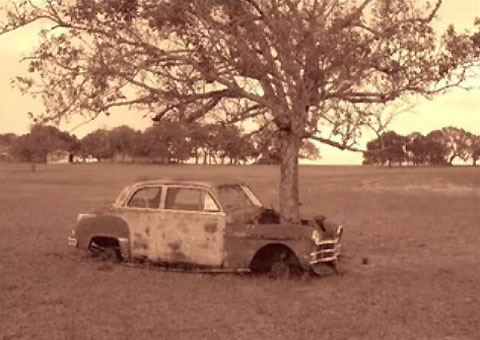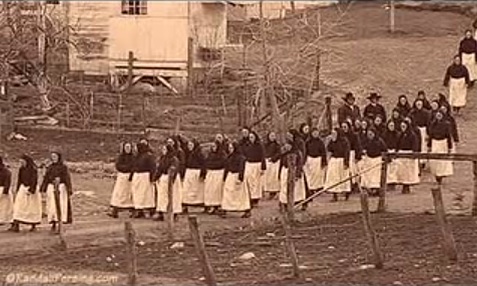[Normally
these columns are scheduled to appear every other Sunday in the Kauai
Garden Island News.The final published version may vary from this text
as TGI retains the right to correct and edit the material. The
copyright to the published version is held by TGI owner Kauai
Publishing. Some material in TGI columns may have appeared on
www.islandbreath.org already.]
by Juan Wilson on 16 March 2008 Revision 1.4 080311
A Book Review
“World Made By Hand” (WMBH)
is a new novel by James Howard Kunstler (Atlantic Monthly Press, 336
pages, $24 at Borders). The story is a view into the near future where
the kind of lives we live in America today are only dim memories. I
recommend you read it. It may even change your circumstances in that
future world.
Mr. Kunstler’s
writing career began with newspaper reporting. For several years he was
a staff writer for Rolling Stone Magazine. In 1975 he dropped out to
become a full time author. He has written several novels and
non-fiction works. His non-fiction work has focused on the dilemma
created by building our living arrangements around the “convenience” of
cars.
Kunstler says he wrote "The Geography of Nowhere",
because "I believe a lot of people share my feelings about the tragic
landscape of highway strips, parking lots, housing tracts, mega-malls,
junked cities, and ravaged countryside that makes up the everyday
environment where most Americans live and work."
In 2005 he published “The Long Emergency: Surviving the End of Oil, Climate Change and other Converging Catastrophes of the Twenty-First Century”.
That book changed my life. It has prepared my mind for the big changes
resulting from “Peak Oil”. Peak Oil is the halfway point in the
consumption of all existing fossil fuel. It is important because it is
the point at which the inevitable downward trend in available oil will
begin to be felt.
In “The Long Emergency” Kunstler described where we are now regarding Peak Oil.
“Looked
at closely, the peak will resemble a kind of bumpy plateau because the
price and demand data would appear to wobble inconclusively for a
while, perhaps several years... The global peak period will be a time
of both confusion and denial... Eventually economic growth as
conventionally understood in industrial societies will cease.”
Those clinging to a non-negotiable American life style find the “The
Long Emergency” a nightmare. For those seeking an alternative to our
auto-centric suicidal behavior, it offers a ray of hope.
In more than one way, “The Long Emergency” is the parent of “World Made by Hand”,
which is a fictional narrative of what it will be like without cheap
oil to grease our lives along. If reading non-fiction is too dry for
you, this page turner will grab you and take you for a trip through the
aftermath of SUV accessed suburbia.

image above: Robert Earle, the protagonist in James Kunstler's "World Made by Hand"
World made by Hand
The booktakes place a generation from now, when young adults have
little or no memory of the good old days of refrigeration and big box
stores. Some time before the book’s narrative begins, nuclear devices
were smuggled into America cargo containers. One was detonated in Los
Angeles, the other near Washington.
In a spasmodic reaction, a Middle East War embroils the world. In its
aftermath the United States is denied access to imported oil. Much of
familiar America unravels in the following decades. A lot gets wrecked
in North America. Starving people have fled the cities. Race wars have
occurred. New diseases have decimated a generation. We do not see these
events. They are mostly over and not well understood by those survivors
who try to pick up the pieces.
The
locale of the book is Union Grove, a small backwater town that
straddles a stream leading to the big river in the Hudson Valley. It is
somewhere in New York above Albany. The state government services are
non existent. The residents of Union Grove are not in communication
with federal authorities, if there are any. The turmoil that gripped
America for years has largely left Union Grove alone to fend for
itself.
The book is written as a first person account of one hot summer in
Union Grove. The narrator is Robert Earle, who once earned a living
flying around the country organizing trade exhibitions for a software
company. He is now middle aged and gets by as a carpenter.
Robert Earle says of his town, “The egalitarian pretenses of the high
octane decades had dissolved and nobody even debated it anymore,
including the women of our town. A plain majority of the townspeople
were laborers now, whatever in life they had been before. Nobody called
them peasants, but in effect that’s what they’d become. That’s just the
way things were.”
Much of the energy spent by the residents of Union Grove is related to
growing, hunting, preparing and preserving food. Kunstler writes with
pleasure about the details of daily life. You can smell the cornbread
and taste the fresh pan fried trout.
Entertainment is different than today. It’s not consumed, it’s
produced. Playing a musical instrument or singing is a passion for
many, and Robert has become a skilled fiddler.
Robert’s life is complicated when a young man from the town is killed
and there is no legal or judicial system to deal with the tragedy. This
sets into motion a series of exciting and dramatic incidences that lead
the town out of its lethargy and depression.
The Four Gangs
Kunstler weaves the lives of four distinct groups into his tale about Union Grove.
The first group is the original residents still living in the town.
Most of the young people are gone. The town folk go through their days
with a sense of loss. Their community is held together loosely by
efforts to feed and clothe themselves. Robert Earle becomes their
leader.
Another group is made up of outcasts, rednecks and outlaws that live in
a sprawling trailer camp outside of town near the old landfill. They
lead by ex-trucker Wayne Karp. The denizens of Karptown make their
living mining the landfill for anything intact, and stripping the
nearby ghostly suburbs for anything useful - like nails.
A third group lives outside of town on a sprawling estate with moorage
on the Hudson River. It is run as a feudal society by Stephen Bollock,
the lord of the manor. It is the only place organized enough to
generate any electric power and is able to conduct a little trade up
and down the river. Most people on Bollock’s land are serfs.
A new group come to town as the novel opens. They are the New Faithers,
a religious cult on an exodus from the south. They have seen a great
deal of trouble on their journey fleeing Virginia. They settle in the
abandoned high school just outside Union Grove, to the consternation of
some.
The main dynamic of the novel is the differing approaches these groups
use to deal with the situation in which they find themselves. The
intertwining of their efforts lead to surprising and interesting
results. A good deal of action is packed into the story.

image above: A still from the "trailer" on the website www.worldmadebyhand.com
Movie Review & Critique
There is evidence that Kunstler intended this book to be a movie, or
better yet, a long run HBO series. The story is told cinematically, not
through introspection. Dialog, action and visual description drive it.
It also takes place over a short period of time with no long sojourns
into the private past of its characters. The whole story can be told on
the screen. It has the pace and climax associated with cinematic
writing.
Interestingly, Kunstler’s website (www.kunstler.com) now leads to the (www.worldmadebyhand.com)
website. That site plays the acoustic music you might imagine Robert
Earle and his friends playing. There is a “Play Trailer” button that
uses still frame dramatizations from the book for a promotion. Some
real production went into that effort. For those interested in reading
a sample chapter, that is also on the website.
Kunstler’s story falls into the broad category of post apocalyptic
saga. One famous post nuclear war book-to-movie deal was “On the Beach” by Nevil Shute in 1957. That was little more than a sad eulogy for the human race. Twenty years later began the "Mad Max" film trilogy by George Miller, that combined to create a post-atomic-war and post-oil scenario. "Mad Max" was a non-stop action series
of brutal violence.
Kunstler’s “World Made By Hand”
is not like either, although it has a sadness and there is violence.
His book reads more like a Western by Zane Grey or Louis L’Amour. Those
two were both romantics telling their stories in the context of a wild
land’s transition to modern civilization set in the past. Kunstler
adventure is a mirror image world - a transition from modern
civilization to a wild land set in the future. Let me be the first to
coin the genre name “The Eastern”
The isolation of Union Grove is too great, almost like the set of a
stage play where no where else on earth exists. Opportunities were
missed to show more differences in the approach to living by the “four
gangs”. It was surprising to me that Kunstler did not illustrate more
self-righteousness and intolerance on the part of the New Faithers
toward the Townies. More details of the oppression involved in being a
serf on Bullock’s farm would have been welcome and dramatize why some,
like Robert, stayed a Townie.
Lastly, Kunstler offers us an element of the supernatural that hits a
sour note. It seems like an unnecessary device in so well told a tale.
This
book deals with the central issues that will determine the quality of
our lives and the lives of our children. I highly recommend it as
an exciting story of our future that concludes on an optimistic note
about our lives to come.
|



